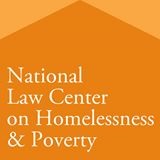As New Homeless Education Law Goes Into Effect, States Have to Do More
New Resources Available to Help With Implementation
WASHINGTON, DC – (RealEstateRama) — The National Law Center on Homelessness & Poverty issued a new report showing that too many states were struggling to make schools accessible to students experiencing homelessness, even before heightened legal requirements went into effect earlier this month.

The report, Homeless Students Count: How States and School Districts can Comply with the New McKinney-Vento Education Law Post-ESSA, based on a 50-state survey of current state laws is accompanied by several important resources to help state education departments and local school districts to comply fully with federal law, including the amendments to the federal McKinney-Vento Homeless Assistance Act that went into effect October 1.
“Education is essential to helping the more than 1.3 million students experiencing homelessness in our country break the vicious cycle of homelessness and poverty,” said Maria Foscarinis, Executive Director of the Law Center, and primary drafter of the original 1987 McKinney Act. “We are encouraged that new amendments to federal law set a higher baseline for ensuring access to education, but our survey shows the need for changes at the state and local level to ensure that promise is made real for all students.”
McKinney-Vento’s education provisions require state education departments and local school districts to ensure students experiencing homelessness enjoy equal access to their right to education. The requirements, originally passed in 1987, were amended in 2001 through the No Child Left Behind Act, and again in 2015 through the Every Student Succeeds Act (ESSA).
The Law Center’s new report reviews the state of compliance with the law prior to ESSA, and makes recommendations for compliance with the new law in key areas such as funding, staffing and capacity, accessibility and transparency, criminalization of homelessness, coordination and collaboration, supports for academic success, unaccompanied youth, and privacy.
“Our survey found that many states have not kept pace with the demands of the law even before new requirements went into effect,” said Michael Santos, Staff Attorney at the Law Center. “To achieve full compliance, we recommend that states and school districts look closely at their funding, staffing capacity, monitoring protocols, technical assistance, school discipline policies and community ordinances that may criminalize homelessness, credit accrual policies, access to early childhood education, and privacy policies.”
The Law Center produced the report and an accompanying manual, No Barriers: A Legal Advocate’s Guide to Ensuring Compliance with the Education Program of the McKinney-Vento Act (2nd Ed.), in order to help states, schools, and advocates effectively spot areas of noncompliance and take appropriate steps to implement McKinney-Vento.
###
The National Law Center on Homelessness & Poverty (www.nlchp.org) is the only national organization dedicated solely to using the power of the law to prevent and end homelessness. With the support of a large network of pro bono lawyers, we address the immediate and long-term needs of people who are homeless or at risk through outreach and training, advocacy, impact litigation, and public education.
Contact: Michael Santos
202-787-5668














